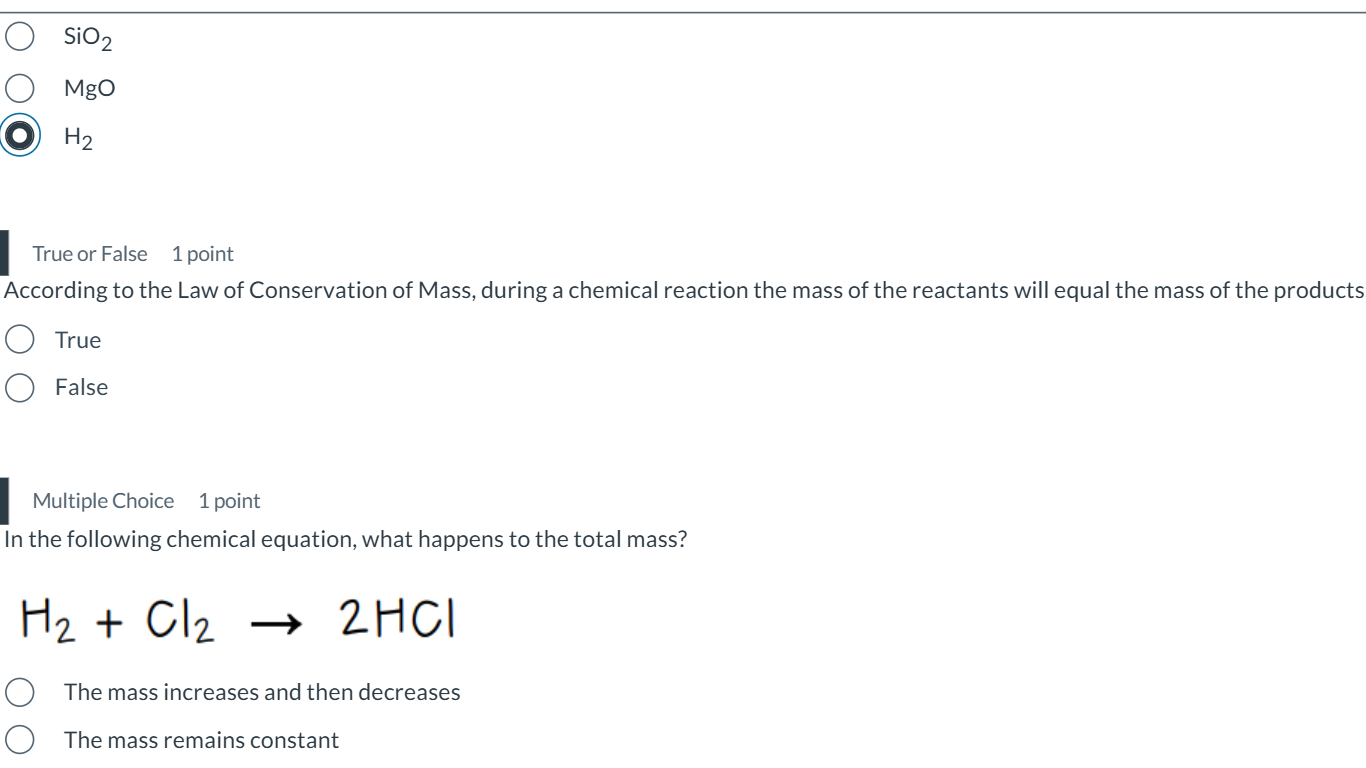1. According to the Law of Conservation of Mass, during a chemical reaction does the mass of the reactants equal the mass of the products? 2. In the chemical equation H2 + Cl2 -> 2... 1. According to the Law of Conservation of Mass, during a chemical reaction does the mass of the reactants equal the mass of the products? 2. In the chemical equation H2 + Cl2 -> 2HCl, what happens to the total mass?

Understand the Problem
The image presents two chemistry questions. The first question asks whether the statement "According to the Law of Conservation of Mass, during a chemical reaction the mass of the reactants will equal the mass of the products" is true or false. The second question asks about the total mass in the chemical equation H2 + Cl2 -> 2HCl.
Answer
True, The mass remains constant
According to the Law of Conservation of Mass, during a chemical reaction the mass of the reactants will equal the mass of the products is True. In the chemical equation H2 + Cl2 -> 2HCl, the total mass remains constant.
Answer for screen readers
According to the Law of Conservation of Mass, during a chemical reaction the mass of the reactants will equal the mass of the products is True. In the chemical equation H2 + Cl2 -> 2HCl, the total mass remains constant.
More Information
The Law of Conservation of Mass is a fundamental principle in chemistry. It states that mass is neither created nor destroyed in a chemical reaction. While matter can change form, the total mass of the reactants always equals the total mass of the products.
Tips
Students might confuse the Law of Conservation of Mass with other conservation laws, such as the conservation of energy. It's important to remember that mass is conserved separately from energy, and the total number of atoms of each element must be the same on both sides of a balanced chemical equation.
Sources
- Law of Conservation of Mass #2 - Complete the following questions - mayfieldschools.org
- Conservation of Mass in Chemical Reactions | CK-12 Foundation - flexbooks.ck12.org
- Problem 19 According to the law of conserva... [FREE SOLUTION] - vaia.com
AI-generated content may contain errors. Please verify critical information